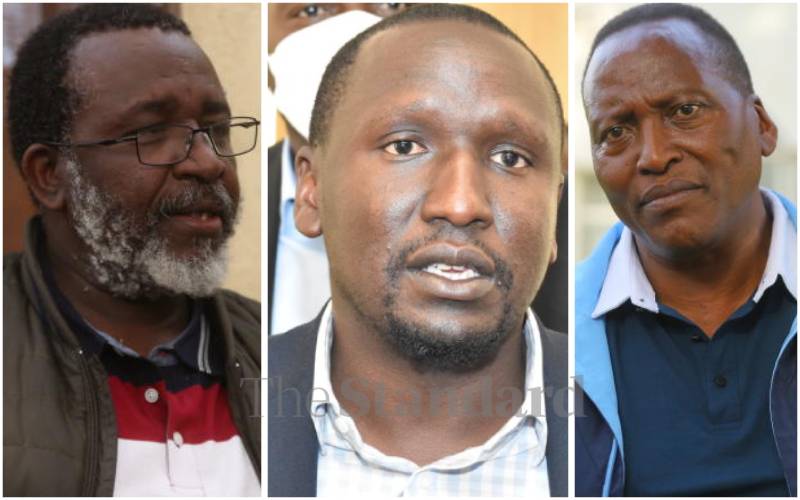×
The Standard e-Paper
Smart Minds Choose Us

Meru Senator Mithika Linturi, Kericho Senator Aaron Cheruiyot, and Kitutu Chache South MP Richard Onyonka. [File, Standard]
In the last few days, Kenyans have debated the unfortunate use of the word “Madoadoa” by Senator Mithika Linturi in a UDA rally in Eldoret, Uasin Gishu county.